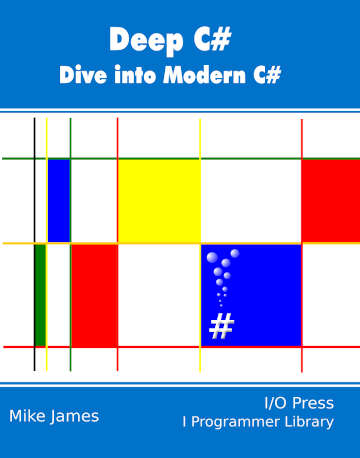| Deep C# - Delegates |
| Written by Mike James | |||||
| Monday, 02 June 2025 | |||||
Page 1 of 4 Delegates are C#'s original way of allowing you to work with functions as if they were first-class objects. The aim may be simple, but the need to define a type and then an instance of the type can be confusing. Find out more in this extract from my book, Deep C#: Dive Into Modern C#. Deep C#Buy Now From Amazon Chapter List
Extra Bonus Material <ASIN:B09FTLPTP9> Delegates are at the core of a number of different .NET facilities, events in particular. It’s long been a truism that the way to get work done is to delegate, but what are C# delegates all about? First we have to understand the nature of the problem that delegates are designed to solve. First-Class FunctionsIn many languages functions are treated in the same way as objects. In JavaScript, for example, functions are objects. This is often expressed by saying the functions are first-class objects or they are first-class functions. Why should this matter? The simple answer is that sometimes you want to pass a function as an argument to a method call. There are other things you might want to do with a first-class function, including having a reference to it or having an array of such functions, but if we concentrate on the most common usage, passing functions to methods, then we have the key idea. For example, suppose you have a sorting routine, you might want to pass in a function that determines what A>B means, i.e. return true if A is greater than B and false otherwise, where A and B are objects of some type. This seems like a reasonable thing to do, but notice that in C# and in other object-oriented languages there are no "disembodied" functions. All functions are methods that belong to some class or instance of a class. This make things a little more complicated because now you cannot simply create a function called You might think of defining something like: and now you could try to pass an instance of the object: That is, you are trying to pass This is an approach that could be made to work, but C# is strongly typed and every parameter in a method has to have a type. What type is A different alternative is to demand that every time you want to pass a function you have to pass an object that has that function as a method. This is what Java does, for example. In this case we don't have a problem with types: However, within the In other words, to pass a function you have to pass an entire object which wraps the function. Of course, the one advantage of this method is that, in principle, you could pass a whole set of functions in one go, but this doesn't make up for the inconvenience of the approach when you are trying to pass just one function. As any Java programmer will tell you, this approach is workable but very verbose. You have to define a class for every function you want to pass and create an instance to pass every time you want to pass it. It is the original method that Java used to implement event handling and over time new facilities such as anonymous classes and eventually lambdas have been added to the language to make this cumbersome method easier to use. |
|||||
| Last Updated ( Monday, 02 June 2025 ) |
